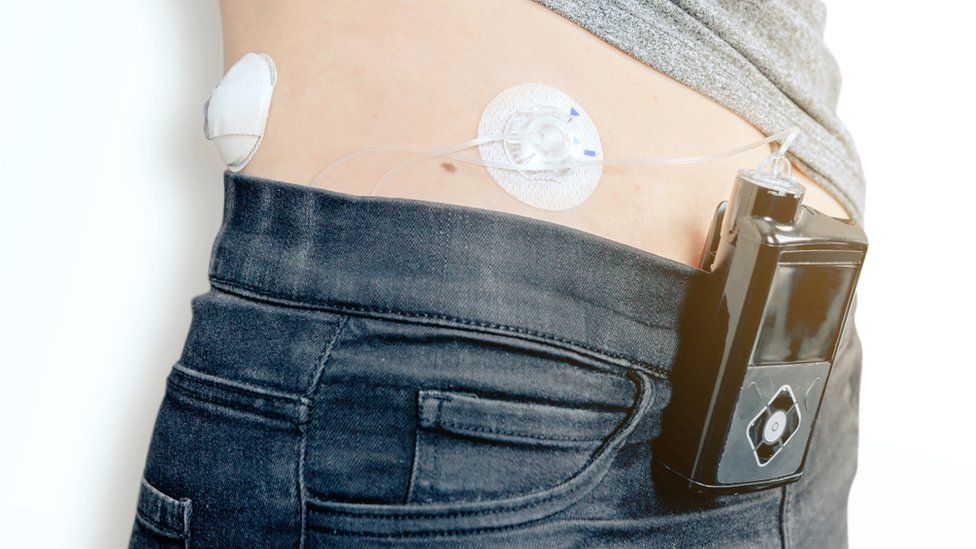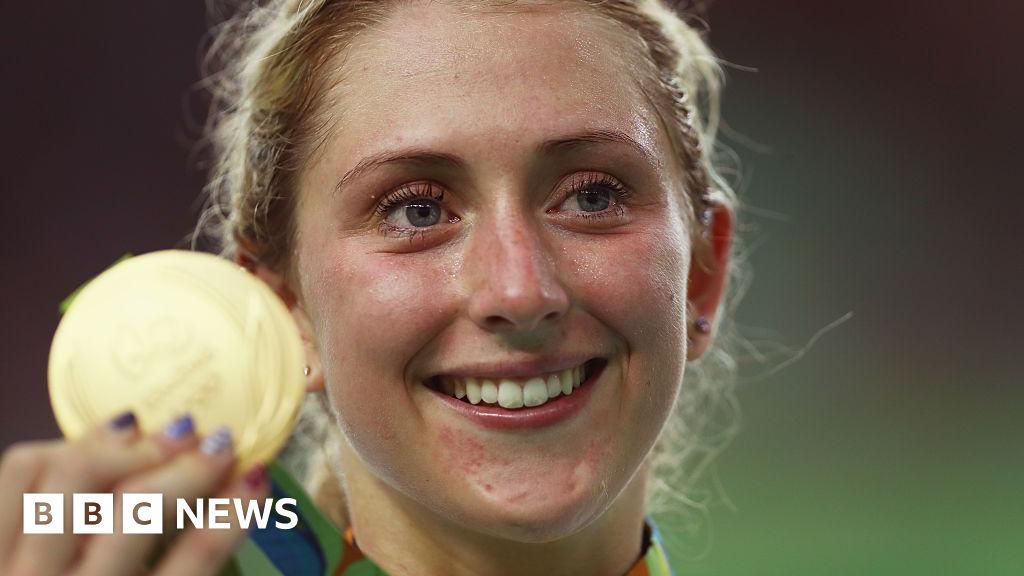 Image source, Getty Images
Image source, Getty Images
The technology automates the release of insulin into the bloodstream
By Nick Triggle
Health correspondent
Tens of thousands of people with type 1 diabetes in England are to be offered a new technology, dubbed an artificial pancreas, to help manage the condition.
The system uses a glucose sensor under the skin to automatically calculate how much insulin is delivered via a pump.
Later this month, the NHS will start contacting adults and children who could benefit from the system.
But NHS bosses warned it could take five years before everyone eligible had the opportunity to have one.
This is because of challenges sourcing enough of the devices, plus the need to train more staff in how to use them.
In trials, the technology - known as a hybrid closed loop system - improved quality of life and reduced the risk of long-term health complications.
And at the end of last year, the National Institute of Health and Care Excellence (Nice) said the NHS should start using it.
Nearly 300,000 people in the UK have type 1 diabetes, including about 29,000 children.
It means their pancreas fails to produce insulin, an important hormone that helps turn food into energy.
They have to closely monitor levels of sugar, or glucose, in the blood and give themselves insulin every day of their lives, via either injections or a pump.
And this new technology does that automatically, virtually mimicking the function of a pancreas - although it still requires information on food intake to be inputted at mealtimes to work accurately.
The new technology is intended to help prevent people with type 1 diabetes experiencing life-threatening low or high blood glucose levels, which can lead to unconsciousness and can even be fatal.
And it also helps to improve overall blood sugar control, which means the chance of complications - like heart disease, eyesight problems and kidney disease - decreases.
Scotland is also offering the technology, and Wales and Northern Ireland could soon follow suit.
Gemma Lavery, 38, from Plymouth, who is using the device after being part of an NHS pilot scheme, says it has transformed her life.
"I no longer have to worry about work-related stress affecting my blood-glucose levels, as the closed loop helps to sort this out before it becomes a problem," she says.
"I can have a full night's sleep without worrying about regular low glucose levels hindering my morning routine and I have found that my diabetes is more stable."
'Incredibly exciting'
Prof Partha Kar, NHS national speciality advisor for diabetes, said the move was "great news for everyone with type 1 diabetes".
"This futuristic technology not only improves medical care but also enhances the quality of life for those affected," he added.
NHS England diabetes clinical director Dr Clare Hambling said the technology "holds the power to redefine the lives" of people with type 1 diabetes.
She added: "Type 1 diabetes is an easily missed diagnosis, so if you are concerned about symptoms - the four 'T's - going to the toilet, passing urine more frequently, with thirst, feeling tired and getting thinner, please come forward for support."
Diabetes UK chief executive Colette Marshall said: "It's incredibly exciting to see this technology being rolled out.
"This really is a landmark moment."
Nice approved the NHS roll-out of the system last December, with the NHS later setting out a five-year plan for how to provide it for those eligible.
Nice recommends its use for those with type 1 who are in certain categories, including children and under-18s, pregnant women, and those with a HbA1c reading - a way of recording long-term blood sugar levels - of 58 mmol/mol, or 7.5%, or higher.
Related Internet Links
The BBC is not responsible for the content of external sites.
 (1).png)
 9 months ago
15
9 months ago
15













